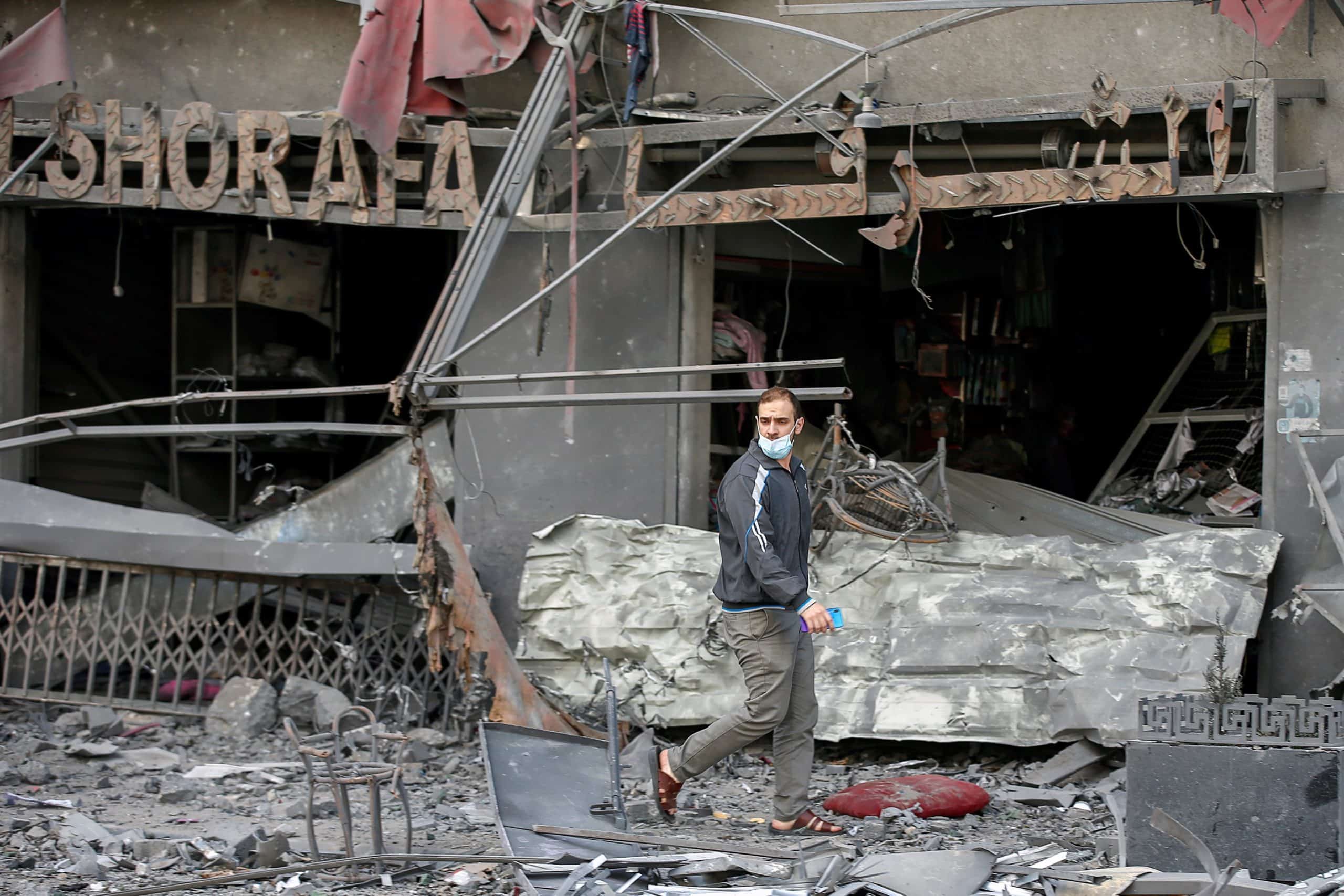Over the past two weeks, fighting between Israel and Hamas has dominated international news coverage. Tensions between the Israeli government and the Palestinians had been building over evictions in a Palestinian neighborhood in East Jerusalem as well as skirmishes between Israeli police and worshippers on at least two occasions at the Al-Aqsa mosque. Hamas, the Palestinian Islamist group that administers the Gaza strip, began firing rockets into Israeli territory and Israel responded with airstrikes that have destroyed schools, mosques, and hospitals. So far, around 230 Palestinians and twelve Israelis have died as a result of this violence.
Western observers sometimes tune out conflict in the Middle East, especially between Israelis and Palestinians. Often I hear people remark, “Oh, they’re at it again! Haven’t they been at each others’ throats for thousands of years?”
The answer is no. People are not born hating each other, and relations between nations and ethnicities are constantly changing and evolving. Poor knowledge of recent world history has led to Americans falling back on harmful stereotypes of the peoples of the Middle East, and to a complete misunderstanding of the conflict between Israelis and Palestinians.
In fact, we can date the beginnings of conflict in the land between the Mediterranean Sea and the Jordan River to the early 20th century at the earliest. It was there that competing visions of nation and homeland collided, with a large helping of colonial meddling setting up a situation that almost could not help falling into contention.
Britain and France, as victors of World War I, divided the spoils between them. In the Middle East, this meant splitting up the former Ottoman Empire, which had allied with the losing side. With the blessing of the League of Nations, Britain created “mandates” of Iraq, Palestine, and Transjordan (present-day Jordan). In the course of prioritizing its own interests, the British government laid the groundwork for conflict by making contradictory promises of sovereignty to both Jews and Arabs.
In the late 1800s, Jews faced violent repression in Russia and Eastern Europe under the czar’s pogroms, and sought a place of refuge. Around this time, the journalist Theodor Herzl began articulating modern Zionism, the idea that Jewish exiles should return to form a Jewish state in their historic homeland, from which they had been forced to flee starting with the Roman army’s destruction of the Temple in 70 CE.
At the time Herzl was writing and organizing in favor of the Zionist cause, Jews made up around 7.6% of the population of what is today Israel and the Palestinian territories. The rest of the population was mostly Arab, with a small number of other minority groups. Through a series of waves of migration, or aliyot, Jews increased to nearly 50% of the population by the founding of the State of Israel in 1948.
British foreign secretary Arthur Balfour encouraged the Zionist enterprise through what became known as the Balfour Declaration, in which he assured the British Jewish community that the British government would “favor the establishment in Palestine of a national home for the Jewish people.”
Meanwhile, Arab forces had sided with the British in their campaign against the Ottomans in the Arab Revolt of 1916-1918. In exchange for rallying troops to the cause, the British had promised prominent Arab leader Sharif Hussein of Mecca an independent Arab kingdom whose exact borders would be set after the war.
The idea of an independent Arab kingdom fell victim to yet another set of British promises, this time to France, while the persecution of Jews in Germany that culminated in the Holocaust led hundreds of thousands of Jews to flee, many of them to British Palestine. Tensions, and at times outright violence, between Arab residents and Jewish exiles led the new United Nations to form a study commission that recommended partitioning the territory of the British mandate between a Jewish state and a state for Arab Palestinians.
The State of Israel declared its independence on May 14, 1948. Surrounding Arab states, arguing that an injustice had been done to the native Arab population, resisted the new state militarily. This war began a series of wars, territorial shifts, and migrations of Palestinians that eventually led to the Israeli occupation of the West Bank and Gaza, and millions of Palestinians living in exile.
So, this present conflict really boils down to the desire of two groups of people, Jews and Arabs, for homeland, safety, and security. Both have known repression, exile, and a great deal of suffering. Quite often in the past century, they have inflicted much of that suffering on each other. Fighting between the Israeli Defense Forces and Hamas inevitably causes the greatest harm to innocent civilians, which deepens the tragedy of these two nations competing for rights and sovereignty.
Tensions and violence will not end until both Israelis and Palestinians receive the home and security they have always sought. Whether a two-state solution remains viable, or a one-state solution is inevitable, remains a matter of debate. What remains clear is that the status quo, in which Palestinians have no home of their own, prevents any progress toward a just and lasting peace.


